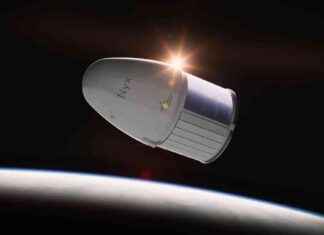Shea Theodore has the routine down. He gets word from Ducks General Manager Bob Murray or a hockey operations staffer and gets into his GMC Yukon for the drive to San Diego.
Or back to Anaheim.
From Jan.1 to Feb. 2, Theodore was reassigned to the minor league San Diego Gulls and called back seven times, including four times in five days. The 21-year-old defenseman did the same dance numerous times in October and November, largely because the Ducks needed to become salary-cap compliant.
If Theodore knows he’s coming right back to Anaheim, he’ll just go to the Del Mar residence he shares with teammates and plug in a playlist for the ride.
“I kind of go hang out for a couple of hours and come back,” Theodore said. “It’s pretty convenient for having guys up and down. San Diego’s an unbelievable spot to play in the American League. I think it’s great.”
Last season, the Ducks and Kings moved their minor league affiliates from Norfolk, Va., and Manchester, N.H., respectively, to San Diego and Ontario.
It made sense, primarily for practicality with their prospects easily available in case of injury to a regular player, as opposed to being a cross-country flight away.
“With player movement, it’s been night and day,” Murray said in an email.
Murray used an example last month when they recalled Theodore and former Ducks forward Stefan Noesen, who were in Anaheim before midnight and practiced the next morning.
“Before, they never practiced,” Murray said.
The proximity has been particularly handy for the Ducks since the re-signings of forward Rickard Rakell and defenseman Hampus Lindholm put them up against the cap. Theodore has been the main guinea pig because he can be sent up and down without going through waivers.
“I talked to [Murray] about it and he said it’s kind of what we had to do because of the cap situation,” Theodore said. “There’s nothing else I can do in that regard. He told me it’s what he had to do if we wanted to win. That’s how I took it. I was OK with it. Going up and down isn’t great. As a young guy, it’s kind of what you have to do.”
The Kings are in a similar position but haven’t had to manipulate the cap with as many frequent moves. Defenseman Kevin Gravel has spent time in Manchester and Ontario and said it’s a world of difference.
“I went back and forth a couple of times last year and sometimes you don’t get the call until later in the night and it’s easier to get in your car and make the hour trip down,” Gravel said.
It’s been easier for the Kings’ management to evaluate prospects with the club so close.
“Normally someone’s there every game,” Gravel said. “It’s nice to know you’re being watched and that those games down there count, you know? So … you’re always bringing it.”
The move of both teams has given hockey more of a foothold in the region. Through Friday, the Gulls averaged 8,415 fans per game at the Valley View Casino Center, formerly the San Diego Sports Arena, the third-best attendance in the 30-team AHL. They were among the league’s leaders in revenue last season.
The Reign were sixth in the AHL with an average attendance of 7,893. Last season, the Gulls and Reign were second and fourth, respectively, in attendance.
The Gulls create a fun atmosphere with $2 beer nights for every Friday home game — 12,920 fans came out for the Jan.20 contest for the second sellout in Gulls history — and a charity Teddy Bear Toss Night in which fans throw said bears onto the ice after the Gulls’ first goal.
“The support that we get there and the revenue that they bring in is unbelievable,” Ducks defenseman Brandon Montour said.
When Montour was called up earlier this season, he was grateful he didn’t have to commute from Norfolk.
“That’s a five-hour red eye, you know? It’s an hour-and-a-half trip,” Montour said about the commute from San Diego. “Even during the day, along the coast, it’s definitely a good view.”
sports@latimes.com
Our editors found this article on this site using Google and regenerated it for our readers.





